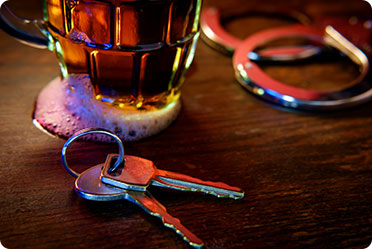
According to the Pennsylvania defense lawyers, the Pennsylvania Supreme Court’s refusal to accept an appeal of the Superior Court’s ruling that the accuracy of alcohol breath tests in highest-rate driving under the influence cases must be determined at trial, has taken much of the steam out of what once seemed as it can be a game-changer for DUI law.
A DUI lawyer with Wagner & Spreha in Harrisburg, Pa, Edward F. Spreha Jr., who was not involved in the case, said that Commonwealth v. Schildt, which had the potential to impact large number of pending driving under the influence cases all over Pennsylvania, is now merely “a footnote”.
According to Spreha and other DUI attorneys, the case did raise an unusual challenge to the scientific accuracy of those tests, the merits of which remain unaddressed by state appellate courts. Arguments same like that may be used either as pretrial bargaining chips or trial defenses going forward, said attorneys.
A Philadelphia DUI defense and personal injury lawyer, Cary B. McClain said, “There’s now a legitimate issue to litigate before a jury and it gives the defense bar room to negotiate for a fair compromise”.
On 25th of February, the high court denied allocator in Schildt.
Last October, defense counsel had asked the justices to take up the case, saying that allowing the accuracy of breath test proof to be determined prior to trial “promotes uniformity in the law, gives a clear signal to future litigants and is also scientifically correct”.
In September 2013, a three-judge Superior Court panel overturned Dauphin County Court of Common Pleas Judge Lawrence F. Clark Jr.’s controversial ruling in Schildt saying that alcohol breath test proof in a driving under the influence case on the grounds that Clark’s determination was premature.
Clark found that breath alcohol testing devices that were used by law enforcement cannot accurately detect BAC level above or below the calibrated range of 0.05 to 0.15% and therefore are not enough to meet the burden of evidence in highest-rate driving under the influence cases.
Lawyers said that Clark’s ruling had the potential to impact a large number of pending DUI cases all around Pennsylvania but the Superior Court never found a scientific analysis of the breath tests in its seven-page memorandum opinion, instead finding that Clark abused his discretion in granting pretrial habeas corpus relief to defendant Jason R. Schildt due to the reason that the state made at least a prima facie showing that Schildt had been driving with a BAC level of 0.16% or above.
The court wanted the case for trial.
Judge Cheryl Lynn Allen said Clark “manifestly abused” his discretion by requiring the state to establish beyond a reasonable doubt the reliability of the breath test administered to Schildt at such an early stage in the case. “In short, the trial court prematurely and improperly held the commonwealth to its burden of proof at trial, in granting appellee’s pretrial motion to quash the complaint”.
Judges Susan Peikes Gantman and Sallie Updyke Mundy were with Allen in making the decision.
Justin J. McShane of the McShane Firm in Harrisburg, said that he did not consider it to be a loss due to the reason that it merely focused on the timing of Clark’s ruling, while leaving the scientific analysis in Clark’s opinion “undisturbed”.
Schildt urged the court to address the scientific analysis in his petition to the Supreme Court, saying the case “presents the best opportunity to provide guidance on a statewide level as to this repetitive issue”. Schildt argued in the petition, “this exact matter will be litigated hundreds if not thousands of times” all over the state but now that the justices have declined to hear arguments in the case, driving under the influence defense attorneys said they don’t believe the courts will be inundated with similar challenges to breath tests.
According to them, a large number of law enforcement agencies all over Pennsylvania have moved away from breath testing to blood testing.
Spreha said, “If you want to fight it on a case-by-case basis, you have to bring in the experts and spend the cash”.
A DUI lawyers with Fairlie & Lippy in North Wales, Pa., Steven F. Fairlie said that defense experts in cases like Schildt “probably cost in the area of $20,000. The average citizen can’t afford that”.
For those defendants with the means to challenge breathe tests, according to the attorneys it can be difficult to justify advising a client to take a driving under the influence case to court.
Advising a client to challenge a breath test at trial means advising a client to risk jail time in lieu of simply accepting ARD, said Fairlie.
Spreha said that lawyers will require gauging whether judges in a particular county have exhibited a proclivity for siding with the defense when they make arguments similar to those that rose in Schildt. “If you know all the judges are finding people guilty regardless of your argument, it’s hard to say to your client, ‘Let’s try again”.
According to Spreha, jury trials are risky due to the reason of their unpredictability but lawyers did agree that the scientific challenge raised in Schildt is an interesting one that could gain traction under the right trial situations.
McClain said, “It’s a good argument and I think you could see juries getting persuaded to follow it”.
News Source: www.TheLegalIntelligencer.com
Leckerman Law focuses on safeguarding the
rights of individuals charged with DUI, DWI, DAI, and
other alcohol-related criminal offenses - Call Us Now For
NJ DWI (856) 429-2323 | For PA DUI (215) 496-9292